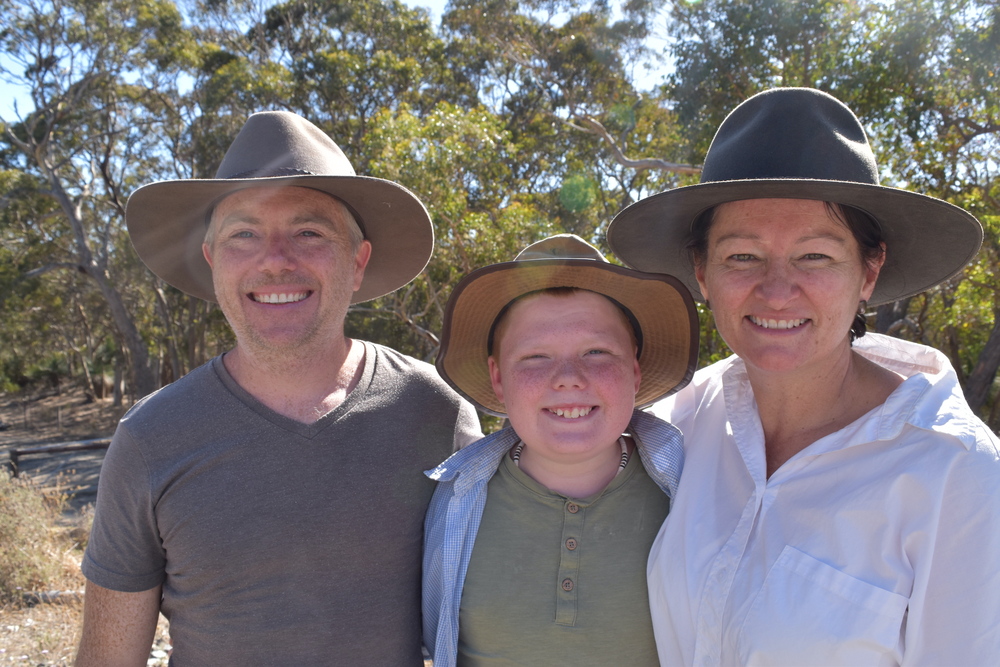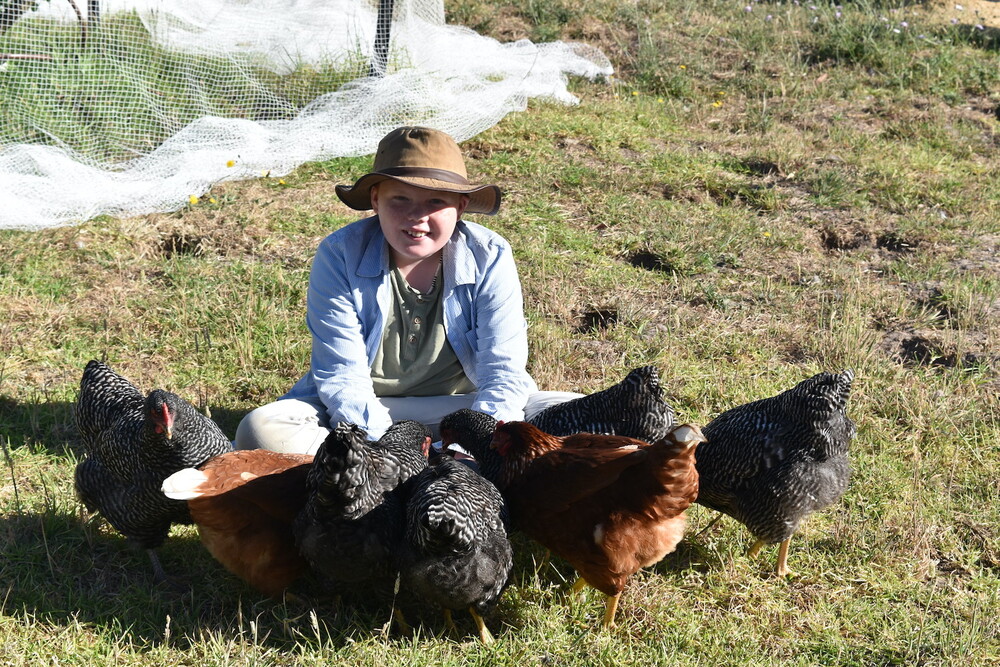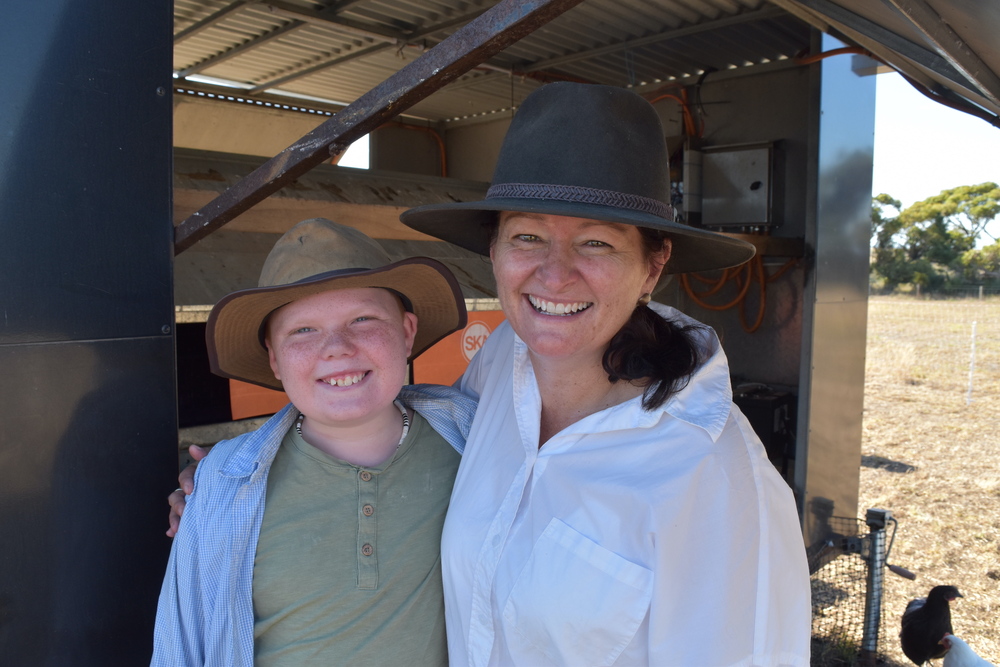Mothering a blended family
Staff Reporters
11 May 2024, 8:30 PM

SPOTLIGHT STORY
Story and photos: Ashley Porter
Blended families have often been celebrated in fiction such as the vintage TV sitcom The Brady Bunch.
The reality of living in a blended family is, of course quite different, and especially so when it includes family members who are neurodiverse.
Living this reality are Claire Fuller with her two girls, Sienna, 16, and Scarlett, 11, and her partner Simon Capp, father of twins Heath and Austin, who turned 13 on Anzac Day.

What makes the real-life situation for this Port Elliot family challenging and genuinely special, is that Scarlett and the twins are neurodiverse on the autism spectrum, meaning they have developmental, learning conditions or differences to be embraced.
Claire believes that despite the situation this Mother's Day, Sunday, May 12, will again be a wonderful day for her, especially because their family circumstances continue to bring everyone closer.
Last July Claire and Simon took on a 60 acre property on Range Road, Back Valley to create a pasture-raised eggs business – Back Valley Farm – a sustainable journey that is likely to lead to employment and a sense of achievement for their beautiful and bright children with autism.
Claire has a background in environmental management and as a land management advisor, and Simon runs his own financial planning business, Tree House Financial Planning.
They say a big consideration in making this 'tree change' from a previous suburban lifestyle was the children's future.
Heath, who is home-schooled two days a week, is already thriving in his new environment. His work experiences include caring for 20 chickens in the first of a few caravans rotated across a pasture area protected by two alpacas, plus another nine 'chooks' in a pen. He longs for the day he can learn to drive the tractor. On Sundays he joins Claire, Simon and the girls volunteering at the local Crozier Cafe, preparing meals for people in need.
“Volunteering is another means of getting the children involved in every-day activities,” Claire says.
However, like every family caring for children with neurodiverse issues and doing the best it can for them, there have been challenging times.
Claire notes that when her children attended a school in Adelaide specifically for those with autism, each of the 50 students at the time was from a broken family. “It tells you that neurodiversity puts a big strain on relationships really through no one's fault,” she says.
“The thing I find most challenging is the reaction of some other people to our children. As one example, when I was at the supermarket recently I was at the check-out when I realised I had forgotten something so Scarlett went off to get the item for me. Instead of coming back around another person placing items on the conveyor belt she went between her and the belt to get to me. It was just Scarlett being herself; the shortest possible route.

“The other person made a big thing of it unaware of Scarlett's issues. It's just those little things in our life and some people may say, 'oh she's just a kid' but you can only say that for so long.
“There are a lot of things going on. There are complexities that I don't think have fully landed yet, and people who don't know just think that she is just being a rude kid. That can be hard.
“Autism is not a difference or something that you can immediately see; it is a silent issue.
“A lot of my work has been about environment engagement and dealing with outrage over environmental matters and my job was to be the mediator between community sentiment and state government policy so actually I am quite proficient in reading people in social situations. I am sensitive to that.”
Simon and Claire will soon build on their Back Valley property with the thought the three youngest children will be with them for a very long time. “We know this, and it's not such a bad thing,” Claire says. “It is what it is.
“I think neurodiversity exists in a lot of families, but often it is just seen as, 'oh they are just a little bit different'. It is about awareness.
“Like other families in a similar situation I am sure what really matters is that our children are still beautiful and we love them all.
“Simon has been an amazing dad. Every situation is unique, but I think the one thing that is keeping us together or being able to adapt to the situation is the approach to the kids and maybe having a particular focus on their needs while also ensuring it doesn't rule the whole life. Yes, there are special needs and it's about what can we do for them, but we also the need to draw the line.
“I think it helps being very active people, that we keep things moving, we engage, we are motivated to find them help, and motivated to find connection with other similar home-schooled children on the Fleurieu.
“I know that on Mother's Day I will be just as proud as any other mother. It's hard work, but it's also hard for a lot of other mums of this world. I hope they have a great day like I will.”
